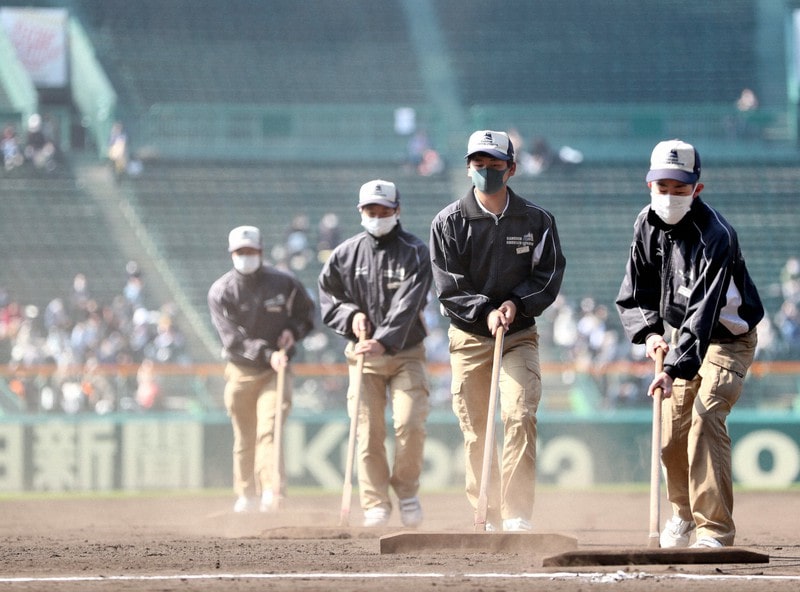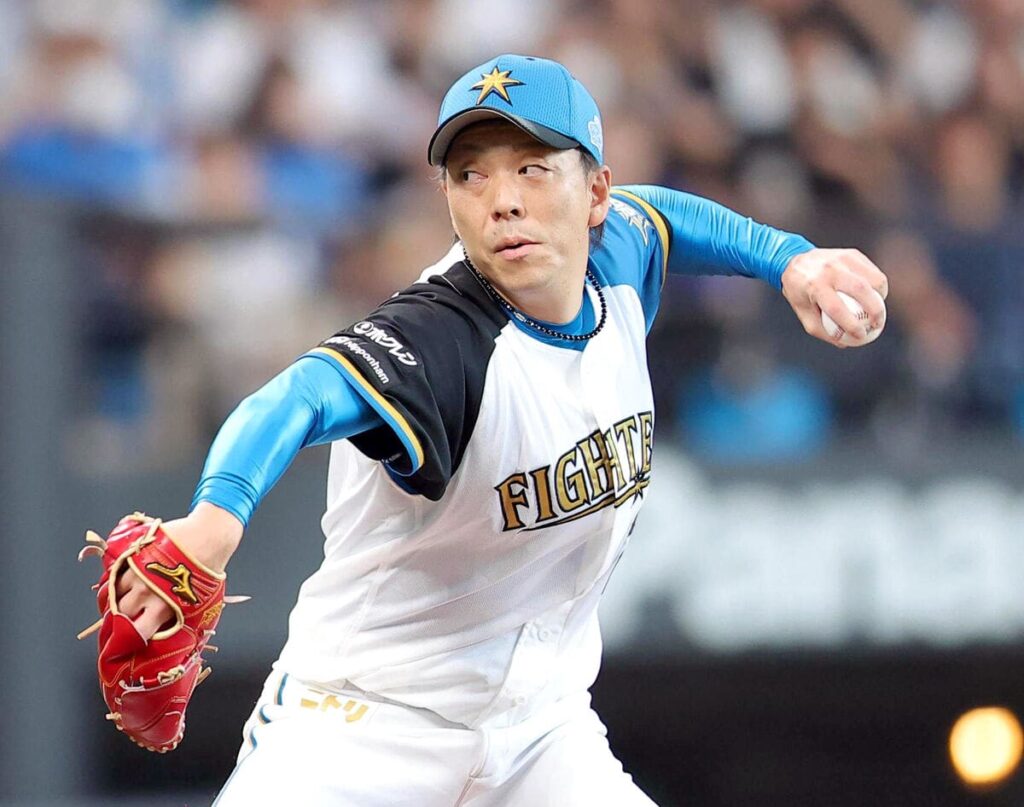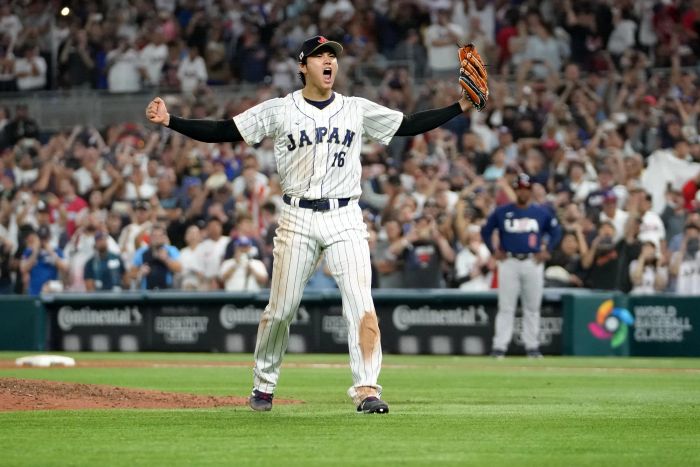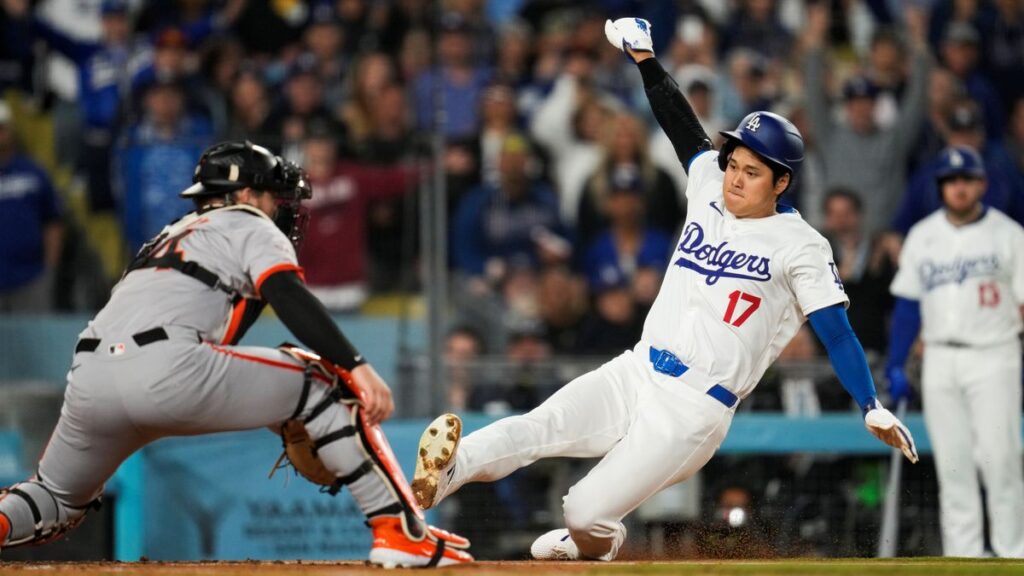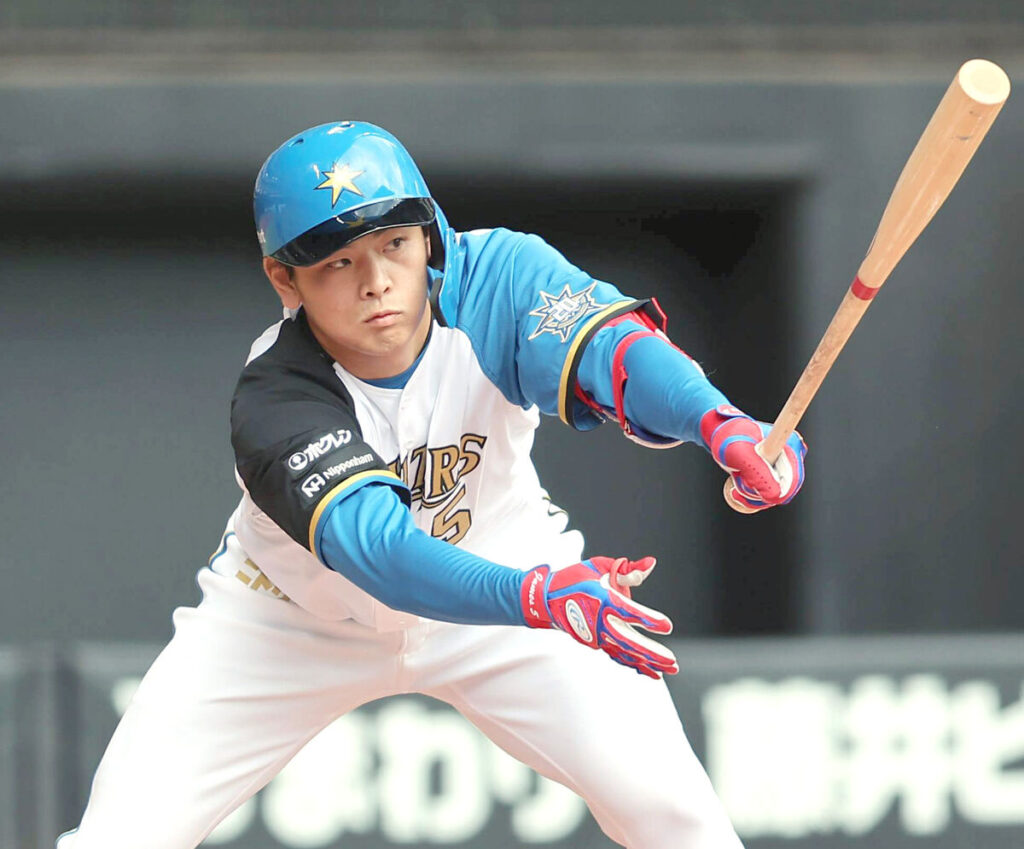
In the world of baseball, player trades are a common part of team formation and strengthening.
However, there are many cases where players refuse to be traded.
Declining a trade is a major decision that can have a major impact on a player’s career and a team’s strategy.
In this article, we will focus on the topic of “baseball trade refusals” and take a detailed look at the background, reasons, and impact.
We will explore this from various perspectives, including the history and examples of trade refusals, the advantages and disadvantages for players and teams, and the importance of trade refusal clauses in contracts.
Understanding the phenomenon of trade refusal can give us greater insight into player psychology, team strategies, and fan reactions.
Now let’s take a closer look at trade denials.
目次
What is a trade veto?
In baseball, a no-trade clause refers to a player exercising a no-trade clause contained in his contract.
This clause means that a player has the right to refuse a trade to a specific team.
Deciding not to trade has a major impact on a player’s career and livelihood, so the decision is made carefully.
Basic Concepts and Background of Trade Rejection
The basic concept of a trade veto is that a player has the right under his contract to refuse to be transferred to a designated team.
This clause exists to give players some control over their future.
The reason for having a no-trade clause is to take into consideration the player’s financial stability, family circumstances, and career plans as a player.
For a player, a trade is a significant event that can be a turning point in his career.
Therefore, the right to refuse a trade is an important tool to allow players to choose their destination of their choice.
By exercising their trade veto, players can choose the environment in which they are most comfortable and where they can perform at their best.
Differences between trade refusals in Major League Baseball and Japanese professional baseball
There are some differences in how trade refusals are handled in Major League Baseball (MLB) and Nippon Professional Baseball (NPB).
In MLB, there is a system known as “10 and 5 rights,” which automatically grants veteran players the right to veto a trade once they have spent 10 years in the major leagues and five years with the same team.
This system allows players to refuse a trade to a specific team.
On the other hand, in the NPB, trade refusal clauses are often set individually in contracts.
NPB player contracts sometimes contain provisions that allow players the right to refuse a trade to a specific team, allowing players to refuse a trade of their own volition.
These differences mean that players have different means of control over their careers, but both leagues have systems in place to respect players’ wishes.
How rejecting a trade affects players and teams
Declining a trade is a decision that has major implications for both the player and the team.
The advantage for players is that they have control over their careers.
Playing in an environment of your choice will help you feel mentally stable and perform at your best.
Furthermore, for players who value their family and living environment, refusing to be traded is an important right.
Meanwhile, for teams, trade vetoes can impact their plans.
Teams aim to strengthen and balance their forces through player trades, but if a player refuses a trade, the planned trade may not come to fruition.
This can affect team strategies and recruitment plans.
However, building trust with players and providing an environment that they are satisfied with will be beneficial for the team in the long run.
Trade refusals also have an impact on fans.
Fans often don’t want their favorite players to move on, and trade vetoes can be a way to maintain fan support.
By refusing to be traded, players are able to maintain their connection with the fans.
Overall, refusing to be traded is an important player’s right and can have a significant impact on a player’s career and life.
At the same time, it is an important element for the team and a vital part of building trust with the players.
Understanding trade vetoes and using them properly is key to a successful relationship for both player and team.
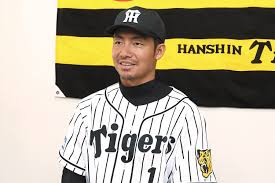
Trade Refusal History and Examples
The right to refuse a trade is one of the most important rights a player has in baseball, and its history has many interesting cases.
We will look at the impact trade refusals have had on baseball through some historically famous cases of trade refusals as well as more recent examples.
Notable historical cases of trade refusals
One of the more famous cases in the history of trade refusals is that of Major League Baseball (MLB) legend Ken Griffey Jr.
Griffey requested a trade from the Seattle Mariners to the Cincinnati Reds in 1999, but exercised his trade veto, refusing to be traded to a specific team.
Griffey took into consideration his family relationships and his playing style when choosing the team that would best suit him.
This decision allowed him to maintain control over his career.
Another famous case is that of Nolan Ryan.
Ryan was a pitcher who had the right to veto trades in the 1980s, and he exercised this right when he was traded from the Houston Astros.
In order to make the most of his career, Ryan refused to move to a specific team and ultimately ended up with the Texas Rangers.
His decision contributed greatly to his subsequent success.
Recent trade refusal cases
A recent example of a trade refusal is that of Mookie Betts.
Betts was rumored to be in a trade from the Boston Red Sox to the Los Angeles Dodgers, and his trade veto became a hot topic.
While the trade was ultimately completed, it’s clear that Betts’ veto power influenced the negotiations.
There have also been cases of trade refusals in Nippon Professional Baseball (NPB).
For example, Yomiuri Giants player Hayato Sakamoto exercised his right to veto a trade when talk of a trade came up in the past.
Sakamoto wanted to spend the majority of his career with the Giants and by exercising this right he was following his wishes.
The impact of trade refusals on baseball
The impact of trade refusals on the baseball world is manifold. First, it plays a major role in managing players’ careers.
By exercising their right to veto a trade, players can take control of their careers and play in the environment that best suits them.
This is important for players to perform at their best.
Trade veto also impacts team composition.
Teams must take into account players’ trade veto rights when strengthening their roster, which can complicate trade negotiations.
For this reason, it is important for teams to place importance on communication with players and build relationships of trust.
Additionally, trade denials also impact fans.
Fans often don’t want their favorite players to be traded, and by exercising their trade veto, players are able to maintain a bond with their fans.
This allows the franchise to maintain fan support and boost morale across the team.
Overall, trade vetoes are a big part of baseball and have huge ramifications for players, teams, and fans.
Understanding trade veto rights and their ramifications is essential for players to maintain control over their careers, teams to make strategic moves, and fans to maintain their support.
Understanding some of the trade refusal cases and the background to them can help you better understand the complex aspects of the baseball world.
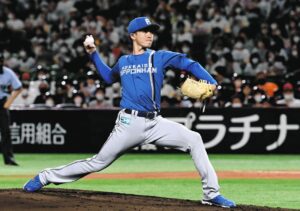
Reasons for trade refusal
A veto of a trade is a right that players exercise when making important decisions in their careers and lives.
There are many reasons why players reject trades, but the main reasons include family and stability in life, loyalty to the team and relationships with the fans, and dissatisfaction with the terms and conditions of the new team.
Reasons for seeking stability in family and life
The desire for stability for family and life is one of the main reasons players turn down a trade.
Due to the nature of their careers, professional baseball players tend to travel a lot, which can have a significant impact on their families.
It is very important to take into consideration the time that players spend with their families and the educational environment of their children.
Especially in households with small children or family members with special care needs, athletes often prioritise not only their careers but also the lives of their families.
For example, a player may refuse a trade if his family is familiar with a particular area or if school or medical commitments would make the move difficult.
Thus, trade vetoes play a vital role in protecting the stability and well-being of families.
Team loyalty and fan relations
Team loyalty and fan relations are also important reasons for refusing a trade.
Players can develop strong bonds by playing on the same team for many years.
This bond can go beyond a professional relationship and become like family.
Relationships with fans are also extremely important. Fans support players, and players build strong relationships of trust by responding to their support.
When a player is traded, it’s natural for him to want to avoid breaking relationships with fans.
In particular, when players have strong support from local fans, they will value that support and try to protect their bond with the fans by refusing to be traded.
In addition, pride as a member of a team and relationships with teammates can also be reasons for refusing a trade.
Players often refuse trades because they want to contribute to their team’s victory and value the relationships they have with their teammates with whom they have played together for many years.
Dissatisfaction with the terms and conditions of the trade
Dissatisfaction with the terms and conditions of the trade destination can also be a reason for a player to reject a trade.
Players want to play in the best possible environment to make the most of their careers.
For this reason, players may take into consideration the situation, facilities, and quality of the coaching staff of the team they are traded to, and avoid environments that are detrimental to their own growth and performance.
For example, if the team being traded to is in a rebuilding phase and is more focused on developing young players than winning, the veteran player may want to consider being near the end of his career and want to play for a team with a championship chance.
Another reason for refusing a trade is if the geographical conditions, climate, or culture of the trade destination do not suit you.
Overall, the reasons for rejecting a trade are many and varied, involving a variety of factors including the player’s life and career, relationships with family, teammates and fans.
Understanding these reasons can help us better understand the decisions players make.
The right to veto a trade is an important tool that allows players to control their careers and play in the environment that best suits them, and that importance will continue to remain.
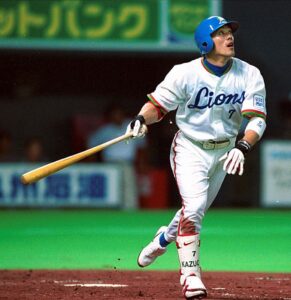
The pros and cons of trade refusal
The right to refuse a trade is an important right for a player and can have a significant impact on his career and livelihood.
On the other hand, it also has various impacts on teams, fans, and the media.
Here we take a closer look at the pros and cons of vetoing a trade from the perspectives of players, teams, fans and the media.
Pros and cons for players
Rejecting a trade has many benefits for players. First, it gives players control over their careers.
If you have a preference for playing for a particular team or are concerned about the living conditions of your family, exercising your right to veto a trade will allow you to maintain the environment that is best for you.
Trade refusal also allows players to have a more stable life.
Frequent moves often place a heavy burden on families, especially when it comes to considering children’s education and family health.
Trade vetoes are an important tool to protect these elements.
On the other hand, there are also disadvantages to refusing a trade.
For example, your position on the team may become difficult.
There are strategic reasons behind teams wanting to trade players, such as strengthening their force or adjusting balance, and refusing to do so runs the risk of damaging the relationship between the player and the team.
Also, refusing a trade may mean missing out on a player’s chance to try out in a new environment.
Playing for a new team can provide new excitement and opportunities for growth in your career, but refusing a trade could cost you these opportunities.
Pros and cons for the team
For a team, there are both advantages and disadvantages to a player exercising his trade veto.
The benefit is that it maintains a relationship of trust.
By respecting the players’ wishes, the team will be able to gain the players’ trust more easily, which will boost team morale in the long run.
Another benefit is that it helps maintain stability within the team.
Having certain players remain on the team stabilizes the team’s strength and makes it easier to plan long-term strategies.
In particular, when a captain or key player refuses to be traded, it can strengthen the team’s unity as a whole.
However, there are also downsides: if a player refuses a trade, it can derail a team’s reinforcement plans.
Trades are an important way to strengthen the team, and if they are rejected, there is a risk that plans will fall apart.
Furthermore, if players continue to refuse trades, it becomes difficult for teams to flexibly adjust their strength, which can lead to an imbalance in the team.
Fan and media reactions and their impact
Fan and media reaction also plays a big role in trade refusals.
It’s a joy for fans when their beloved players exercise their trade veto.
Knowing that their favorite player will remain on the team gives fans peace of mind and motivates them to continue supporting the team.
Also, being able to support the same player over a long period of time builds a strong bond between fans and players.
Meanwhile, media reaction has been mixed, with some coverage being favorable and others being negative when a player refuses a trade.
Because the media widely reports on the actions of players and teams, it is necessary to understand the background and reasons behind trade refusals.
Particularly when a player’s reasons for exercising his trade veto are unclear, media coverage may reinforce critical views of the player and/or the team.
Overall, trade vetoes have many facets that affect players, teams, fans and media.
In order to respect the rights of players while maintaining relationships with teams and fans, it is important to understand the background and reasons for trade refusals and respond appropriately.
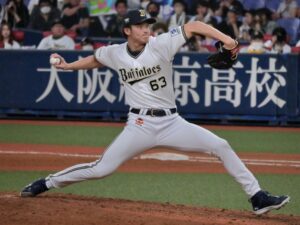
Trade Refusal Rules and Contracts
The trade veto is an important right that allows players to control their own transfers.
This right is written into the contract and has a significant impact on a player’s career and livelihood.
Here we’ll take a closer look at the importance of no-trade clauses in contracts, the differences between Major League Baseball (MLB) and Nippon Professional Baseball (NPB) contracts, and how to negotiate no-trade clauses and their effects.
The importance of no-trade clauses in contracts
A no-trade clause is a clause in a player’s contract that gives him the right to refuse a trade to a particular team.
This clause plays a very important role in managing a player’s career.
Players can choose to decline a trade, taking into consideration their own wishes and family circumstances, allowing them to play in the environment that best suits them.
For players, no-trade clauses are an important tool to ensure stability in their lives.
Frequent moves can put a huge strain on players and their families, and this clause allows players to protect their families’ livelihoods by refusing a trade if necessary.
This clause will also contribute to the psychological stability of players, which will lead to improved performance.
For teams, no-trade clauses are also an important element in building trust with players.
By respecting the players’ wishes, teams are able to gain the players’ trust more easily and build long-term relationships with them.
This also helps to build team cohesion and morale.
Differences between Major League Baseball and Japanese professional baseball contracts
There are some differences between MLB and NPB contracts in terms of rules and clauses regarding trade vetoes.
In MLB, veteran players who have played in the major leagues for 10 years and played for the same team for five years are granted automatic trade refusal rights, known as “10 and 5 rights.”
This right allows a player to refuse a trade to a particular team.
In NPB, on the other hand, trade veto rights are set based on individual players’ contracts.
A player can obtain the right to veto a trade by requesting that this clause be included in his contract negotiations.
For this reason, NPB players can choose whether or not to have the right to refuse a trade depending on their career and life situation.
This difference is an important point in contract negotiations between players and teams.
While rights are granted automatically in MLB, in NPB players must negotiate to clarify their rights.
This has a huge impact on how players want to control their careers.
Negotiating No-Trade Clauses and Their Effects
Negotiating a no-trade clause is an important part of a player’s career management.
Players will work with their agents to negotiate the inclusion of this clause in their contracts, taking into account their personal wishes and living circumstances.
Including a no-trade clause in a contract gives players more control over their careers.
A player’s past performance and future prospects are important factors in this negotiation process.
For example, star players or key players on a team can more easily have veto power over trades, and teams are more likely to accept it.
On the other hand, negotiations can be difficult for young players or those with little track record.
The effect of a no-trade clause can have a major impact on a player’s career and life.
Players can perform at their best by playing for the team of their choice.
In addition, having the right to veto a trade allows players to maintain psychological stability and live a stable life with their families.
For teams, the existence of a no-trade clause is an important factor in deepening trust with players.
By respecting players’ wishes and allowing them the right to veto a trade, teams can more easily gain the players’ trust and build long-term relationships.
Overall, trade veto rules and contracts are important factors for both players and teams.
Players control their own careers and exercise their right to veto trades in order to play in the environment that best suits them, while teams aim to ensure the stability and development of their teams by building relationships of trust with their players.
Thus, trade vetoes play a key role in baseball.

Relationship between players and teams regarding trade refusals
Trade vetoes can create complicated relationships between players and teams.
That trust can be tested when a player’s right to refuse a trade is exercised.
Here we take a closer look at the trust relationship between players and teams and its impact, the impact on a player’s career after refusing a trade, and how refusing a trade affects the management of a team.
The relationship of trust between players and teams and its impact
The trust between players and teams is very important, and a player exercising his trade veto can have a major impact on that trust.
When a player refuses a trade, it is often due to family circumstances, a desire for a stable living environment, or loyalty to the team, so by respecting their wishes, the relationship of trust can be strengthened.
However, there is a risk that relations will deteriorate if refusing a trade goes against the team’s strategy or plans.
If a team is hoping to strengthen its roster or gain financial benefits by trading a particular player, those plans may be derailed if the player refuses to be traded.
In situations like this, disagreements can arise between players and teams, and trust can be strained.
On the other hand, teams that respect the wishes of their players will be more likely to gain the players’ trust in the long run.
Providing an environment where players can play with confidence can boost team morale and unity, which can ultimately lead to improved performance across the team.
The impact on a player’s career after rejecting a trade
If a player exercises his right to veto a trade, it can have a variety of impacts on his future career.
First, there is the benefit that players can continue playing for the team and environment of their choice, allowing them to maintain consistent performance.
Living a stable life with family can help reduce mental stress and, as a result, is expected to improve the quality of play.
However, if refusing a trade sours a player’s relationship with the team, it could have a negative impact on his career.
If a team treats a player poorly or reduces his playing time, there is a risk that the player’s performance and evaluation will decline.
It is also possible that other teams may shy away from a player who exercises his trade veto, potentially reducing his chances of being traded.
Additionally, if a player exercises his trade veto in a highly publicized manner, it may change the public’s perception of that player.
Being exposed to the eyes of fans and the media can also affect a player’s own image and brand.
The impact of trade refusals on team operations
Trade refusals also have a significant impact on team management. First, a player’s trade refusal can be an obstacle when a team is trying to strategically strengthen its roster or adjust its team balance.
When a team is unable to get what they would have gained by trading a particular player, the balance of power is upset and this can have a negative impact on the team’s overall performance.
A trade refusal could also affect a team’s financial plans.
Many teams trade players with high-value contracts in order to adjust their salary cap and make more efficient use of their funds, but if this is hindered by trade refusals, it can also affect the team’s business strategy.
Additionally, frequent trade vetoes can complicate contract negotiations between teams and players.
If a player requests the right to veto a trade, it can make it difficult to negotiate contract terms, and it can take longer to finalize the contract.
Overall, refusing a trade has a huge impact on the relationship between the player and the team, significantly affecting the maintenance of trust, the development of one’s career, and the management policies of the team.
It takes a player and a team to understand each other and build trust in order to successfully navigate a trade refusal situation.
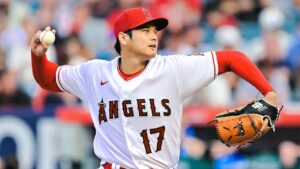
The future outlook for trade refusals
While refusing to be traded has been considered an important player right, attention is also being paid to their future prospects.
We will look at future trends and predictions for trade refusals, how fans and the media are changing their attitudes toward trade refusals, and the long-term impact trade refusals will have on baseball.
Future trends and predictions for trade refusals
Going forward, trade refusal trends are expected to play an increasingly important role in players’ career management.
As players become more aware of their rights, we can expect to see more demands for trade vetoes to be included in contracts.
In particular, with the free agent market becoming more active and players increasingly wanting to move freely, trade vetoes will likely become an important negotiating point for players.
Additionally, as players’ associations and agents emphasize the importance of the trade veto, the right could become more common in contract negotiations with teams.
The right to veto trade will likely be given increasing importance in order to give players more career options and ensure stability for their families and lives.
Changes in fan and media response to trade refusal
It is expected that fans and the media’s perspective on trade refusals will also change.
In the past, refusing a trade has sometimes been seen as a selfish or self-serving act on the part of players, but as players become more aware of their rights, understanding of this will likely increase.
Fans are expected to respect the players’ lives and families and understand that the exercise of the trade veto is intended to improve the players’ quality of life.
The media may also reconsider how they report on trade refusals.
More detailed reporting on players’ backgrounds and reasons for refusing a trade would allow for more coverage that would provide a better understanding of the players’ decisions.
This will likely strengthen the trust between players and fans, making it more acceptable for players to exercise their trade veto.
Trade refusal’s long-term impact on baseball
The long-term impact of a trade refusal on baseball is manifold.
First, greater flexibility and diversity in player career management could lead to improved player performance and raise the overall level of the league.
This will allow players to play in an environment that is optimal for them, which will lead to more consistent performance and more exciting matches for fans.
In addition, as trade veto rights become more common, it is likely to have an impact on baseball teams’ management strategies.
Teams need to value the trust they place in their players and respect their wishes in order to build long-term teams.
This will increase player satisfaction and contribute to improving the club’s image.
Additionally, the existence of a trade veto could have a positive impact on player health care and welfare.
Having players play in a stable environment will reduce mental and physical stress, which will have a positive effect on injury prevention and recovery.
On the other hand, an increase in trade refusals could complicate trade negotiations between teams and make it more difficult for trades to be completed.
This requires teams to be more careful in their strategies and planning.
In order to maintain the trust between players and teams, flexible management that takes into account the right to veto trades will be required.
Overall, the future outlook for trade refusals is likely to become more important as players become more aware of their rights.
If players, teams, fans and the media all understand the background and impact of trade refusals and respond appropriately, the entire baseball world will be healthier and more attractive.
